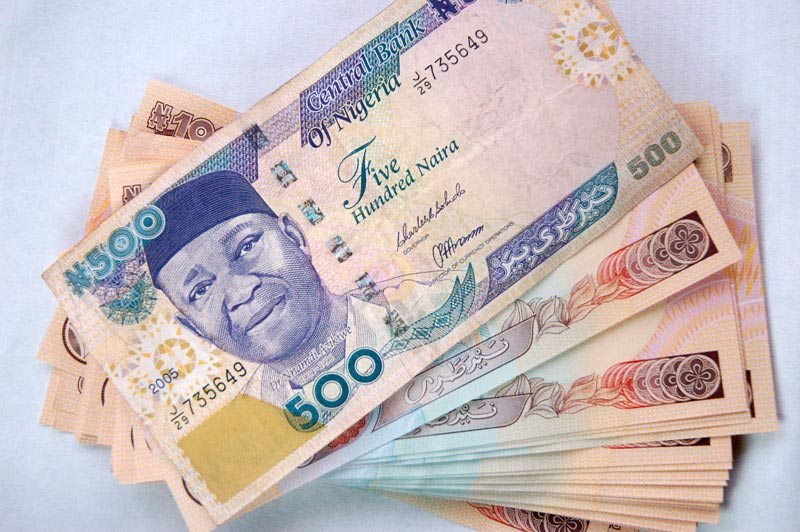
Date: 2025-01-15 Page is: DBtxt003.php txt00016007
Nigeria
Naira ... the Nigerian currency
August 2018 ... Throw back Thursday ... 45 years after the naira was introduced
Burgess COMMENTARY
I started to do work assignments in Nigeria in August 1974. At the time, the $/Naira exchange rate was $1.50 for 1 Naira. On my last visit to Nigeria about 30 years later, the exchange rate was 400 Naira for $1. I remember a good friend of mine in Nigeria saying that he had hoped for a long time that he could become a millionaire by becoming rich, but that he was now a millionaire, but still relatively poor. Most people in the rich countries of the world have no idea how important it is to have a stable currency. When the money becomes worth very little, it is almost impossible for the economy to function. It happened in Germany after the 1st World War, it has happened in several Latin America countries in the past few decades, it has happened in Zimbabwe, it is happening in Venezuela ... and the list goes on. It explains why rich people in unstable countries try to keep most of their wealth in countries where the economic system is stable. It may not be 'rifht' but it is understandable!
Peter Burgess

Shortly after the dust of the Nigerian Civil War had settled, General Yakubu Gowon sought to mend ethnic suspicion caused by the civil war starting with a new national currency majorly to cut the last monetary ties with the British Protectorate. Work began earnestly on a currency system unique to Nigeria, and the Nigerian Naira was rolled out on January 1st 1973. The economy was on a rapid climb; the period from the early 1970s marked the beginning of the oil boom Nigeria would witness for many more years.
No victor, no vanquished.
General Yakubu Gowan, after the Nigerian Civil War
New dawn
Nigeria had been making use of the British Pound Sterling as legal tender since it became a protectorate of the British Colony in 1928. Up until then, cowries and manilas were the medium of exchange in most parts of Nigerian cultures wherever trade by barter wasn’t the norm. In fact, the usage of such ancient currencies, such as the cowrie, must have contributed greatly to the cultures which had robust counting systems. Bank notes were issued for 50 Kobo, and 1 Naira, 5 Naira, 10 Naira, 20 Naira but the notes didn’t have the faces of Nigerians on them at the time.
When General Murtala Muhammed was declared a national hero by General Olusegun Obasanjo on October 1st 1978, consequent upon his assassination, which marked the 13th February 1976 ‘failed’ coup, General Murtala became the first Nigerian to appear on the Naira note. New notes of 10 Naira and 1 Naira notes which had had Alvan Ikoku and Herbert Macaulay faces on them respectively, were later to be released on 2nd July 1979.
It was known that when the Nigerian Naira opened for trading as at January 1973, it exchanged for 2 Naira to 1 Pound. In essence, if you had 2 Naira you could purchase 1 Pound with it. This was arguably one of the most valuable currencies in the world at the time. Also bear in mind that the economy was also helped with booming agricultural produce which gave Nigeria an edge in the commodities market. This was all before the oil intermittent windfall took center-stage and swung the attention of our leaders indefinitely in the direction of an oil resource which would later be the ultimate curse to the nation and the polity.
The naira today
Today, 45 years later, the Naira exchanges for roughly 465 Naira to 1 Pound Sterling at the black market; the fairly lower official rate of 390 Naira to a Pound Sterling is hardly accessible to the general public We can all agree that in its 45 year journey, the Naira has taken such a profound turn towards worse as speculators now virtually bet against the performance of the Naira in preference for other hard currencies. Financial savvy Nigerians and speculators now no longer want to hold their savings in the Naira for fear that double digit inflation would render useless their holding position.
This is surely not the way to go as there is a consensus within financial circles that we need competent hands to ‘grow’ the Naira (which is our national financial identity).
If the Naira is “sick”, Nigerians are inevitably also “sick”. The currency of a nation is a measure of not just its own financial health, but it is also a measure of how well empowered its citizens are.